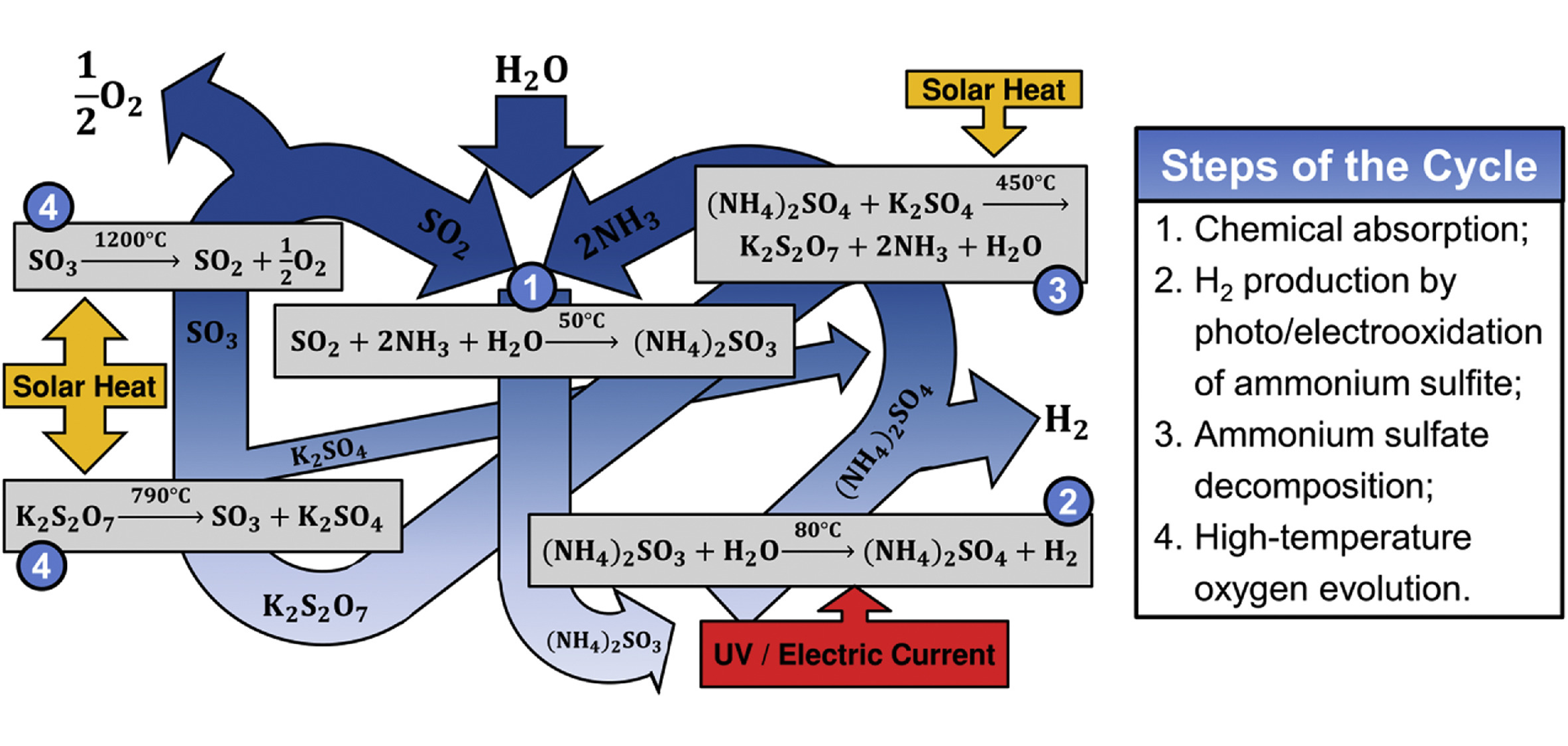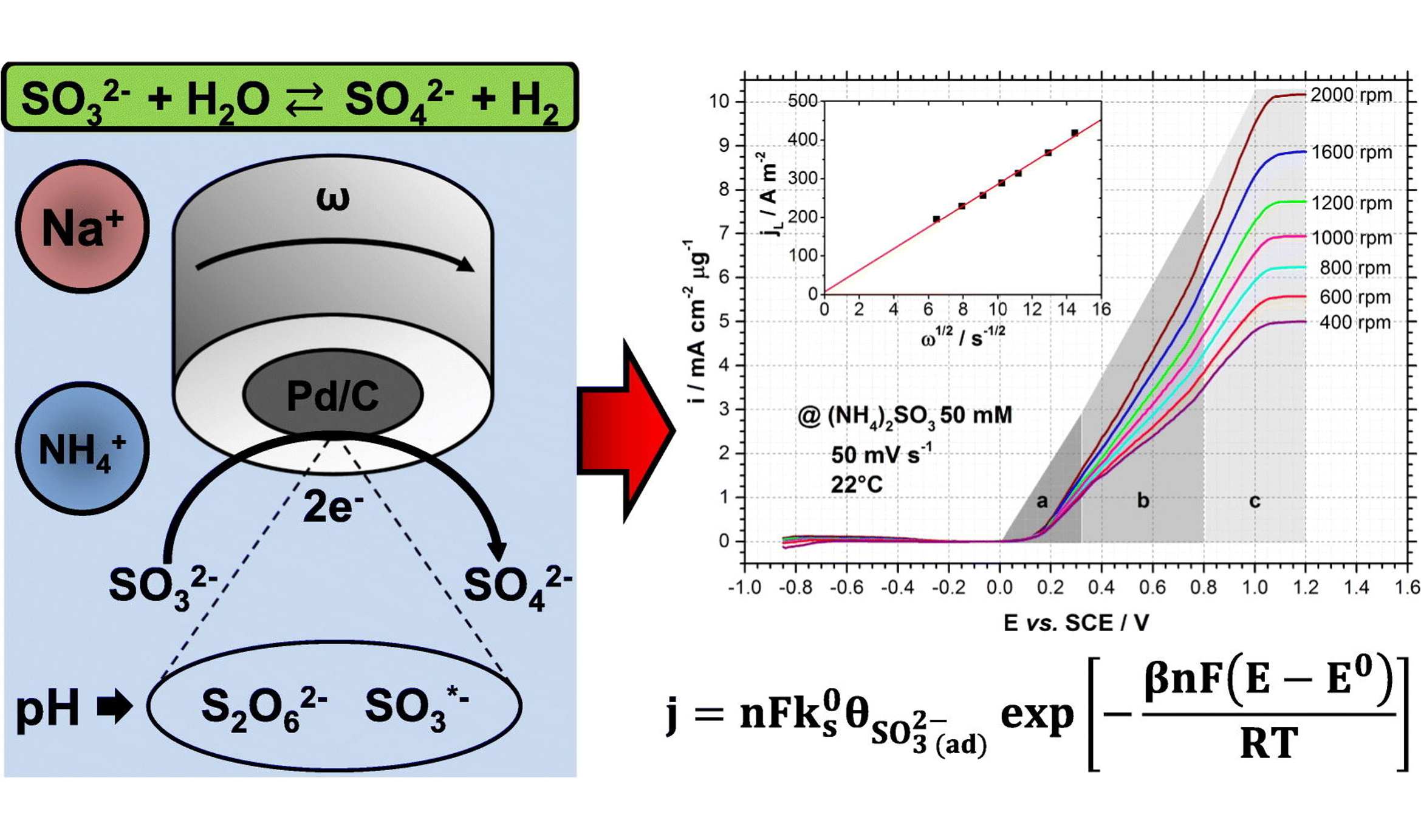Sulfite Electrolysis
Exploring new pathways for sulfur catalysis
Motivation
Among various hydrogen production methods, thermochemical water-splitting cycles (TCWSCs) provide a promising approach for large-scale hydrogen generation. These cycles split water into hydrogen and oxygen using nuclear or solar energy (Figure 1).

Sulfur-based TCWSCs provide an additional advantage, using sulfur dioxide (SO2) from flue gas emissions as feedstock. A critical step in sulfur-based TCWSCs is oxidizing S(IV) species. This reaction can be done electrochemically under ambient conditions by replacing the oxygen evolution reaction (OER) in water electrolyzers. Despite its potential, this proof-of-concept reaction lacks the critical data for developing new catalysts and understanding reaction dynamics, including catalyst poisoning and corrosion.
My research aims to develop new catalytic reactions for converting sulfur species into useful products, focusing on large-scale, industrial applications like TCWSCs. I am particularly interested in revealing how multi-valent sulfur species interact with noble and earth-abundant electrocatalysts and in understanding the mechanisms of catalyst deactivation.
Research Projects
During my undergraduate research at UACH, our group synthesized and characterized Pd catalysts for sulfite electrooxidation. Initially, we assessed a proof-of-concept electrochemical membrane reactor’s performance for sulfite ion electrooxidation at near-neutral pH. After confirming the reaction’s feasibility, we investigated the kinetics of sulfite ion electrooxidation on Pd electrocatalysts using a rotating disk electrode under various conditions (Figure 2).

We subsequently scaled the reaction to an electrolyzer level and analyzed the impact of operational conditions in another study. For more details on this project, please see the Sustainable Processes category on the research page.
Looking ahead, I plan to continue my research on sulfur oxidation processes, focusing on catalysis design and characterization.